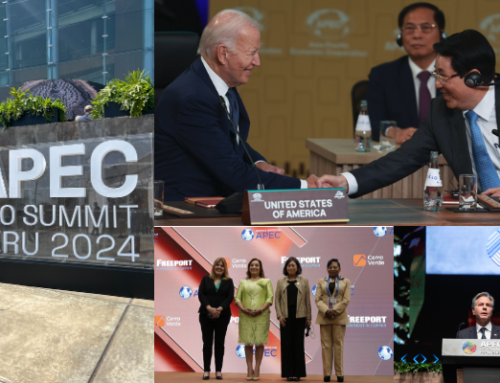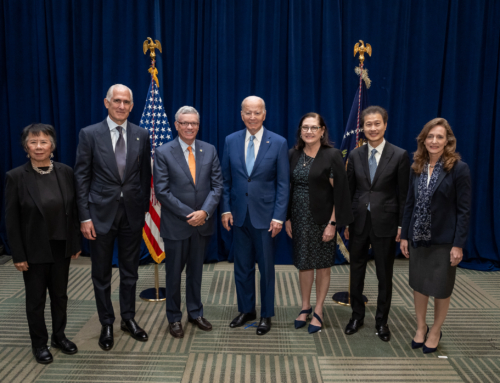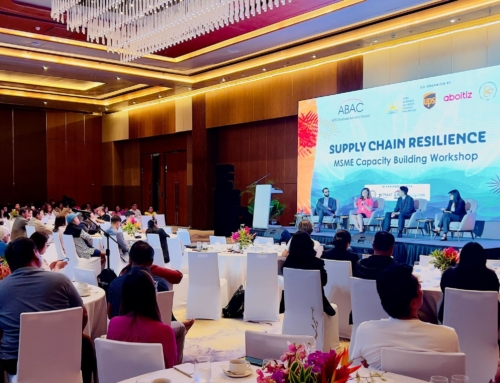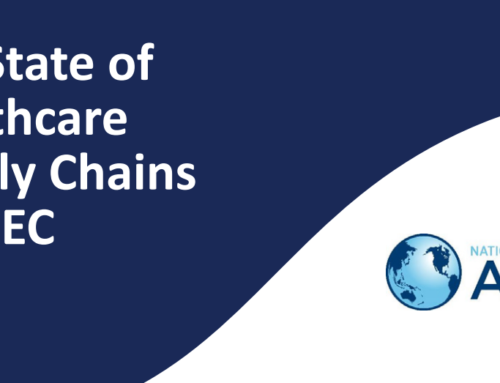The release of the Sixth Assessment Report published in 2021 by the Intergovernmental Panel on Climate Change and the recent endorsement of the Glasgow Climate Pact by 197 countries at COP26 has once again highlighted climate change as a pressing global challenge. The need for innovative solutions to address the risks posed by climate change is especially urgent for economies located in the Indo-Pacific region. According to the Asia-Pacific Economic Cooperation (APEC) Regional Trends Analysis Report, the region suffers from more than 70% of global natural disasters and disaster-related losses amount to USD 100 billion annually. Additionally, it’s estimated that without effective policy action to address climate change, the APEC region could see climate-related economic losses amount to 18% of GDP by 2050.
In response to these growing challenges, APEC Economic Leaders endorsed the Aotearoa Plan of Action in 2021 to guide the implementation of the Putrajaya Vision 2040. Among other priority areas, the Aotearoa Plan of Action aims to support sustainable growth over the next two decades in APEC by encouraging economies to cooperate on:
- Structural reform.
- APEC’s work on the facilitation of trade in environmental goods and services.
- Sustainable infrastructure and transportation.
- Sustainable tourism.
- The development of low and zero emissions technologies, sustainable finance, and carbon pricing mechanisms.
- Accelerating progress towards the 2030 target of doubling the share of renewable energy in the APEC energy mix from 2010 levels.
As the business voice in APEC, the APEC Business Advisory Council (ABAC) intends to assist economies in implementing the Putrajaya Vision 2040 by advocating for business-led climate solutions in the region. As Thailand assumes the chair of APEC in 2022, ABAC is encouraging businesses to adopt climate-related practices agreed upon in the ABAC Climate Leadership Principles for Business and promoting the development of a regional framework for trade and investment in renewable energy.
Under Thailand’s leadership, APEC 2022 will focus on promoting sustainability through the Bio-Circular-Green (BCG) Economic Model. Notable priority areas include:
- Supporting the development of green and sustainable practices among MSMEs.
- Reducing energy intensity and transitioning to clean energy.
- Addressing marine debris and promoting sustainable fisheries.
- Protecting the environment through the sustainable management of resources, production, and consumption.
- Developing an implementation plan for the Food Security Roadmap to ensure food security and sustainability.
Complementary to Thailand’s BCG agenda, the National Center for APEC (NCAPEC) held a workshop on the decarbonization of supply chains in 2021 between the private sector and APEC officials. Issues, such as low-carbon energy, MSME decarbonization efforts and resource management, were key focus areas during the discussion. Looking forward to 2022, NCAPEC will explore opportunities within APEC and ABAC to advance a potential regional supply chain decarbonization framework.
Although APEC and ABAC have set ambitious sustainability strategies for the APEC region, practical policies and actions are required to avoid the most severe long-term impacts of climate change. While 19 APEC economies have declared commitments to achieve net-zero carbon emissions by 2050 or 2060, only the Philippines is set to meet its commitment to the Paris Agreement to keep global warming under 2˚C. However, the ongoing sustainability work and commitments in APEC have shown that regional cooperation can be an important catalyst for solving global climate challenges.
Feature photo credit: APEC Secretariat






